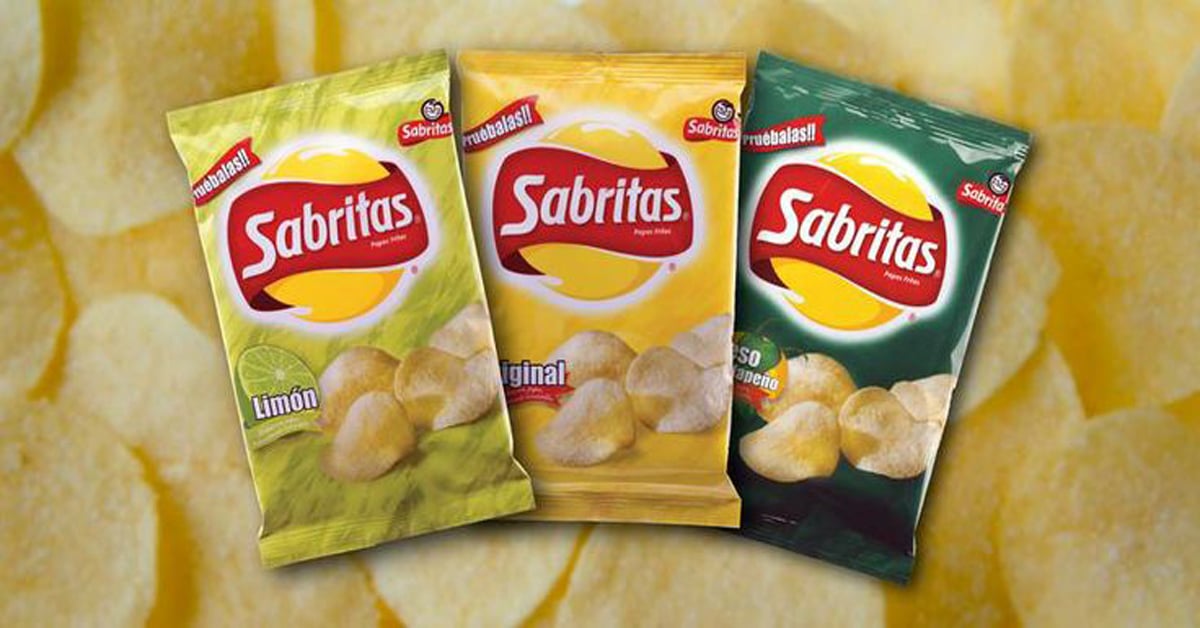Sabritas – “Tasty and Fried” Snacks
Mexico’s most popular snack brand is Sabritas. The name is a combination of the Spanish words “Sabrosas y Fritas,” which translate to “tasty and fried” or “fried ones.” It was established in 1943 and is recognized for the high quality, diversity, and taste of its goods. PepsiCo promotes Frito-Lay products in Mexico under this umbrella brand.
Since you came across this article, you must want to learn more about Sabritas. Below, we will explore its history, products, and development milestones.
Please leave a review or any memories of this snack in the comments at the bottom of this page. Thank you!
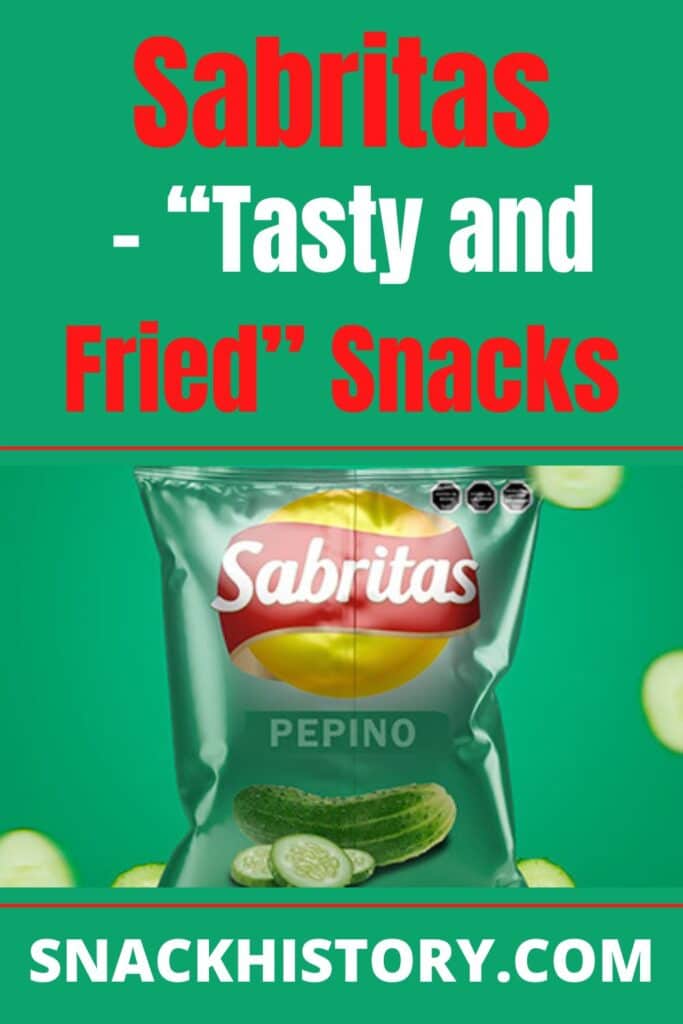
History of Sabritas: How Everything Started
Pedro Marcos Noriega created Sabritas in the city of Mexico in 1943 as a supplier of confections and high-end goods. Based on a limited distribution network, they create and market delicacies such as French fries, maize fritters, and chips while also promoting cycling as “tasty and fried.”
Pedro established “Productos Conde,” a small business that produced items that were hardly ever utilized in his day, with nothing but the kitchen of his own home as his only resource. On their bikes, distributors had to ride their wares around the entire city.
Five years later, in 1948, technological advancements and the excellent fortune of the young firm allowed them to purchase scooters, followed by subsequent cars and trucks that are now replaced every year. The company’s name was changed during this period to Golosinas y Productos Selectos S.A. de C.V., and the first plant opened.
It made and distributed snacks, including potato chips, maize chips, and chickpeas (garbanzos). The Spanish phrase “Sabritas,” which translates to “Tasty and Little Snacks,” was then created by condensing the words “Sabritas” and “Sabrosas y Botanitas.” That is how the line of snacks and sweets bearing the smiling visage of Sabritas came to be.
The “Charritos Cheli,” which was produced in great quantities and with the strictest quality controls, is the first processed product Sabritas ever offers. In the same year, the Noriega family built a small factory with mechanized fryers and began shipping the goods by truck.
The Sabritas brand was acquired and renamed Sabritas S.A. as a result of the merger of the Pepsi-cola Company and Frito-Lay to establish Pepsico. It began streamlining its procedures and expanding its retail network. PepsiCo promotes well-known brands including Cheetos, Fritos, Doritos, and Ruffles, products from the Mexican company Frito-Lay, under the umbrella name Sabritas.
Additionally, Sabritas markets and produces several regional trademarks, including Poffets, Sabritones, Crujitos, and Rancheros. Sabritas is also the name brand for its own range of potato chips.
The first plant in Mexico City was officially opened on March 21, 1968, two years after it had been constructed. Two further factories were established in 1972 and 1980, respectively, at Saltillo, Coahuila, and Guadalajara, Jalisco, in response to increased demand on a national scale.
Appearance Of Sonric’s
A Latin American financial crisis in 1983 prompted Sabritas to launch Sonric’s as a method to add candies to its product range and in reaction to decreased demand brought on by the weakening of economic power. Sonric’s brand was formally established in 1986 to entertain youngsters in Europe and South America.
Sonric’s good fortune served as a navigational aid when traveling between oceans. Sonric’s is the result of Sabritas’ marriage of numerous Mexican businesses in a magical, flavorful, and enjoyable universe. Sonric’s is well-known for its appeal to children and for having a wizard as its mascot, who goes by the name of “El Maguito Sonrics.” The brand was expanded into dry powder mixes and flavored water as a result of its popularity in 1987.
It was expanded into flavored waters like Fresquibon and Douglas as well as dry powder mixes, but regrettably, these products didn’t go well with Sonrics. Therefore, Alegro Internacional, a new PepsiCo business, was created to match them.
New Life Of Sabritas
In 1991, two new Sabritas were born in the towns of Mexicali and Obregon. Sabritas established the Center for Research and Agricultural Development in 1992 to assist with the procedures and research that help Mexican farmers fulfill market demand. Pogs (Tazos) were initially made available in 1994.
Sabritas’ most popular campaign was available to customers for more than a year. In order to enhance its flavor, Sabritas built a second facility in Mission, Texas, in 1996. Harvesting Smiles was launched by the Jarochos three years later with their hard work and commitment in 1999 at one of the world’s most advanced plants in the port of Veracruz, Mexico.
During those years, Pogs (Tazos) returned to the market and are staying there, while Sabritas is commemorating the tenth anniversary of their most prosperous promotion. Their salsa line: Salsabritas, also started being manufactured at their Vallejo facility.
Awards & Merits Of Sabritas
The Sabritas Foundation was established in 2001 with a focus on the health and education of low-income children and youth in Mexico. With the same goal in mind to keep “harvesting smiles,” Sabritas created their website in 2002, and in 2003 they celebrated 60 years of touring around their nation and providing exceptional care.
They also opened a second factory in Mexicali to accommodate demand from the American market. The Sabritas and Activate foundations introduced the concept of physical exercise and a nutritious diet to maintain a healthy lifestyle in 2004 with the help of the Activa2 program and with the assistance of the PepsiCo Foundation.
Sabritas has been awarded the 2005 Socially Responsible Label by the Mexican Center of Philanthropy in recognition of their considerable social engagement. The sustainability report Sabritas released in 2006 demonstrates the company’s development and its dedication to enhancing the areas in which it operates.
In 2008, Sabritas released “Performance Sense,” their sustainability guiding principle. This kind of thinking aims to combine great economic performance with positive social and environmental effects. These four tenets: Consumer with a Sense, Environment with a Sense, Talent with a Sense, and Mexico with a Sense, form the foundation of this ideology.
Mission & Vision Of Sabritas
Being the industry leader in consumer goods with an emphasis on creating readily available meals and beverages is the aim of Sabritas. They make an effort to offer investors sufficient financial returns while also giving our staff, business partners, and the communities where they operate chances for development and enrichment. The brand conducts itself honestly, fairly, and with integrity in whatever it does.
The brand encourages the growth of the communities in which it is active. They assist in the growth of the Mexican economy by engaging in projects with Mexican institutions.
While Barcel (of Grupo Bimbo) is the company’s major rival and has 12% of the junk food industry in Mexico, Sabritas commands over 80% of it.
Logo
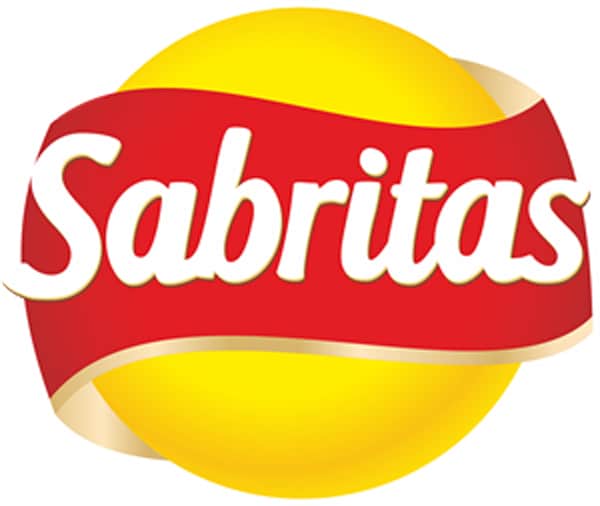
Products Made and Distributed By Sabritas
Today, Sabritas is a manufacturer and distributor of a wide range of chips, snacks, and confectioneries. Among the long list, some of the most famous ones are Ruffles, Cheetos, Doritos, Turbos Flamas, Japanese Peanuts, R Habanero Sabritas, Sabritones, and Sabritas Chili Piquin.
Doritos
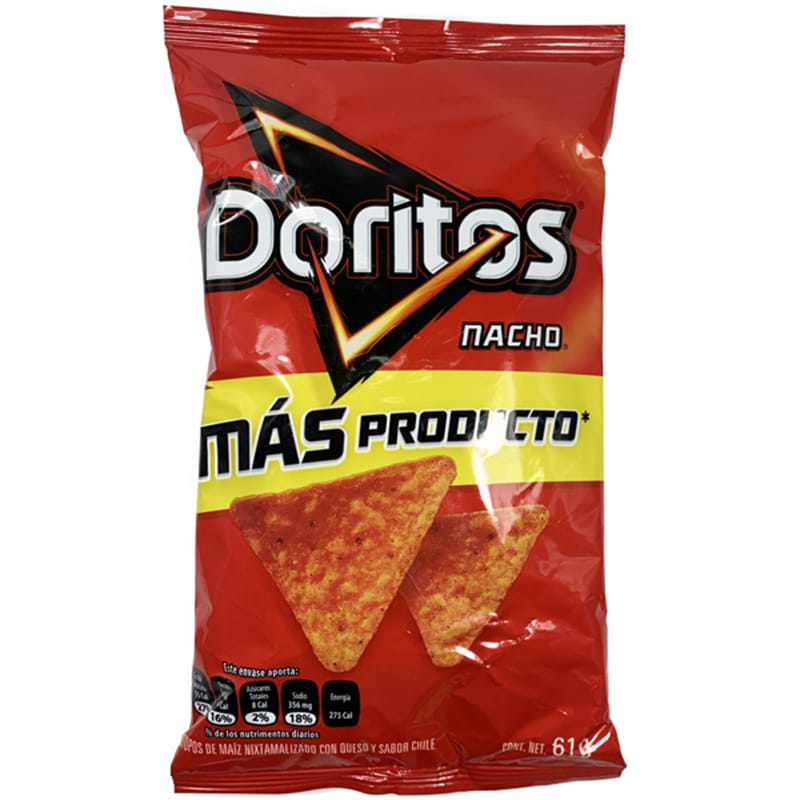
Frito-Lay, a fully owned subsidiary of PepsiCo, has been making flavored tortilla chips under the Doritos brand in the United States since 1964. The original Doritos had no flavors. The first taste introduced was toasted corn, which was followed by tacos in 1967 and nacho cheese in 1972.
Doritos are one of Frito-Lay’s best-selling products and one of the most popular chips in existence right now. Sales of Fritos alone, including the standard Fritos variations, make up a sizeable share.
These chips are available almost everywhere and on all continents. Every day, almost 100 million bags of different Doritos are devoured, and this pattern is expected to last for quite some time.
Turbos Flamas
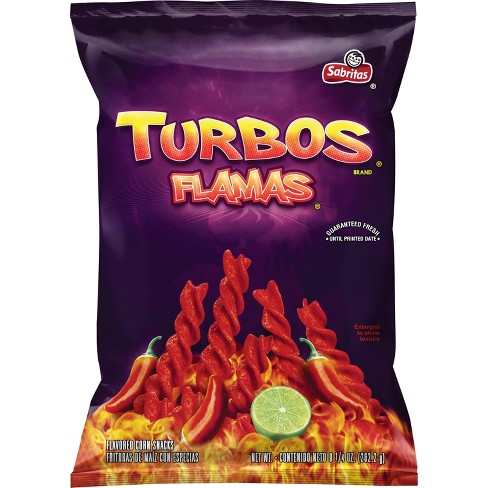
Because of their widespread popularity, Fritos corn chips are a distinctive type of cuisine. Even after more than 80 years, people still appreciate this classic food, whether they are having a meeting in a large city, a rural community, or at a backyard BBQ.
Turbos Flamas are corn-based treats that feature a spiral design like Rotini pasta, but are longer and have a wide range of lengths. They have enough of a flavorful, hot (and extremely red) chile and lime spice. Though the form is wholly different, the intense scarlet and flavor are both reminiscent of Takis Fuego.
Cheetos “Flamin Hot”
Since 2000, Cheetos has experimented with several tastes. Some were popular, while others were revived or just vanished in 2005. This leaves Cheetos “Flamin’ Hot,” which survived a long time thanks to the Picoso product, which disappeared in 2006.
In 2009, the product was returned, but before long, several “Flamin’ Hot” products had been released, including Crujitos, Doritos, Tostitos, Kwates, and later Sabritas and Ruffles. So, it was like creating the first line of products with the same flavor. However, before long, Barcel began the same flavor experiment by renaming “Fire” on items like Takis, Chip’s, and Hot Nuts.
Commercials
Bottom Line
In conclusion, Sabritas is a leading brand in the Mexican snack food market, known for its wide variety of delicious and innovative products. From traditional favorites like Takis and Sabritones to newer creations like Pequeños Sabritones and Sabritones Fuego, Sabritas has something to offer for every taste preference.
With its commitment to high-quality ingredients and continuous product development, Sabritas is a great choice for those looking for a tasty and convenient snack. Additionally, the company’s commitment to sustainability, responsible sourcing, and community engagement are commendable and make it a socially responsible company. Sabritas has 10 facilities, and its headquarters are in Mexico City. It is one of the largest snack manufacturers in the worldwide snack food industry.

Nato is a content writer and researcher with a background in psychology. She’s passionate about writing about the candy industry and exploring the cultural significance of sweets and treats. She believes that the stories behind our favorite snacks can reveal a great deal about our values.
Please leave a review or any memories of this snack in the comments below. Thank you!
Click here for a full A-Z list of Snacks and Candy
